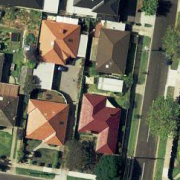Is the green market rout over?
LONDON (Reuters) - Green investing a loser's bet?
Investors have had to navigate treacherous shoals to hunt a few niche environmental winners, but there are glimmers of clean technology opportunities among the wreckage.
Renewable energy may merit a stock-picking approach, after momentum, or index-based investing deserted the sector last year.
In the wake of Lehman's demise and the financial crisis, the MSCI basket of global, publicly traded companies hit a low on March 9, 2009.
Since then the MSCI index has risen 75 per cent. By contrast, indices show wind turbine makers down a fifth, solar manufacturers by a third, and benchmark European carbon futures off by 40 per cent.
Renewable energy manufacturers and carbon markets have faced common problems: prices for energy equipment and emission permits have fallen on over-capacity following the financial crisis.
And there are new headwinds in government support after boom years when climate change topped the political agenda in 2006-2007.
In the case of wind and solar, however, these problems are slowly working through. Continuing demand growth will help absorb excess capacity and improve manufacturer margins in a year or two.
In solar in particular, an expected shakeout this year will see under-performers go to the wall and excess capacity shut, leaving opportunities for surviving manufacturers and developers which have actually benefited from price falls.
Global demand for wind turbine grew last year, as energy-thirsty emerging economies, in Latin America and Africa for example, took the baton from troubled developed countries.
Problems in the other big environmental market, European emissions trading, may be more deeply rooted, however: industry and regulators don't seem to have the appetite for the scale of recalibration needed – one which would require either a vast skimming off of surplus emissions permits or a floor price.
Opportunity
In solar photovoltaic (PV) manufacturing, an estimated global over-capacity of 50-100 percent has collapsed prices and will probably trigger a wave of bankruptcies and consolidation this year among panel, or module, makers.
Chinese manufacturer Yingli said it saw prices stabilising this year, falling by some 5 percent, to about $0.90 per watt at the end of the year, compared with a 40 percent slide last year.
Bloomberg New Energy Finance sees prices ranging from $0.94-$1.06 per watt in 2012.
Surviving manufacturers may benefit: an uptick in solar equities last week was an early sign of that, after news of a demand surge in Germany and new installation targets by China's National Energy Administration (NEA).
Meanwhile developers and manufacturers with project pipelines may benefit as investors seek locked-in profits from falling equipment prices and government support.
Recent US deals include the acquisition by Warren Buffett's power company, MidAmerican Energy Holdings, of a solar farm from US module maker First Solar, and Google's partnering with private equity firm Kohlberg Kravis Roberts & Co (KKR) to buy projects developed by a subsidiary of diversified manufacturer Sharp Corp.
In Europe, KKR and German reinsurer Munich Re recently bought a stake in privately-held solar PV projects across Spain and Italy. China's Solar Power Inc, an arm of manufacturer LDK Solar, acquired projects in Greece from developer EDF Energies Nouvelles Group, an arm of French utility .
Wind
In wind markets, turbine demand rose by about 10 percent in 2011, according to early estimates, partly on a rush to beat the expected expiry this year of a US tax credit.
That reverses a fall in 2010, but over-capacity remains, explaining a roughly 5 perc ent fall in benchmark turbine prices last year.
In a fragmented demand market, Asia and North America fared better than Europe in 2011, and in Europe offshore turbines better than onshore.
One important emerging market is Brazil, where aggressive bidding by developers on a tender last year reflects risks in developed country markets, including a credit squeeze in Europe and an imminent end to tax credits in the United States.















